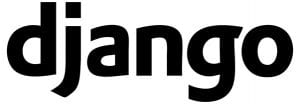Why you should use Django
Django is an open-source Python web framework that has been gaining a lot of popularity lately. It has been used extensively by companies such as Mozilla, Spotify and NASA, as well as within our team. This framework was built by experienced developers and aims at using automation wherever possible to speed up web development and let developers focus on the important stuff. It is fast, secure and versatile. In this article, we will be focusing on the top 9 reasons why we think you should be using it.
1. Built with Python
Because it was built with Python, the Django framework inherits some of this programming language’s most interesting benefits. As we’ve mentioned in a previous article, some of Python’s main advantages are that it’s widely adopted, it’s considered to be quite easy to both read and use, and it’s ideal for machine learning. So, if you’re already coding with Python, Django will be easy to learn. And, even if you’re not, it shouldn’t really pose a challenge either. As an added bonus, Django being built on Python also means that, if you’re in the market for new developers, it should not be difficult to find some that are proficient in this framework.

2. Excellent community
As expected with most open-source projects, Django has a great community of users and backers. Therefore, there is a massive amount of material and resources on it (everything from documentation and tutorials to videos and articles), as well as meetups and workshops. This means that if you happen to come across any issues, someone has probably tackled it before, and will be willing to help you out. You can take a look at Django’s official community here.
3. Highly secure
This is a major selling point for the framework, as it is quite hard to find any security loopholes. Django has strong encryption packages and protection against common attacks (like XSS attacks and Clickjacking), as well as a solid user authentication system. Moreover, it hides your website’s source code and notifies developers of various common security mistakes.
4. Great set of libraries
Another great advantage of stemming from Python and its wonderful community is that Django has numerous useful libraries. Some of the most popular ones include the Django REST framework–aimed at building application programming interfaces–, and the Django CMS–focused on website content management.
5. Good for SEO![]()
Search engine optimization (SEO) is an essential piece of web marketing and, therefore, it is something you should always keep in mind. It is a good thing, then, that Python’s human-readable code gives it an advantage when it comes to search result rankings. Moreover, Django has several SEO tools, including a module called Django SEO framework that helps you reduce page loading times.
6. Highly scalable
Scalability is rather important when it comes to developing web apps. Django includes a series of default components that can be unplugged and replaced for more specific solutions, making scalability effortless. The framework also has the ability to handle traffic and mobile app API usage for a whopping 400 million users, therefore maximizing scalability and minimizing web hosting costs. What is more, Django lets you use plugins to extend your web app, and there are countless packages available to help you scale up your product.
7. Based on the DRY principle
The DRY (don’t repeat yourself) principle encourages developers to reuse existing code, thus reducing errors and simplifying maintenance. This makes Django time-efficient and perfect for high load systems.
8. Django Default admin panel
Django includes a default admin panel to help you manage your application. As well as saving you a considerable amount of time, the panel makes the work dynamics between developers and non-technical staff much smoother as they can immediately start working together on content and processes. You can, of course, modify and adapt the panel to fit your needs.
9. Django Portability
As Python runs on virtually any platform, such as Mac, PC and Linux, so does Django. Therefore, no development or production environment is left unsupported. If that wasn’t enough for you, Django also includes an ORM (object-relational mapper)—a layer between developer and database—that makes it possible to move projects between databases by merely changing a line of code.
Final thoughts on Django
Detractors of Django might be quick to point out that it is not well-suited for small-scale projects, is monolithic, and does not include default support for real-time web apps, but we think the pros far outweigh the cons. As we’ve seen, Django has countless major advantages and access to a never-ending supply of resources, making it a wonderful framework when it comes to web app development. If you aren’t using it already, we hope we were able to at least make you a bit curious about trying it out.







